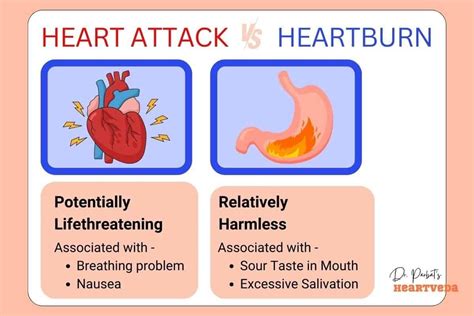Ppo Vs Hmo: Choosing Best Coverage
When it comes to selecting a health insurance plan, two of the most popular options are Preferred Provider Organizations (PPOs) and Health Maintenance Organizations (HMOs). Both types of plans have their advantages and disadvantages, and the best choice for an individual or family depends on several factors, including their health needs, budget, and personal preferences. In this article, we will delve into the details of PPOs and HMOs, exploring their differences, benefits, and drawbacks, to help you make an informed decision.
Understanding PPOs
A Preferred Provider Organization (PPO) is a type of health insurance plan that offers a network of healthcare providers who have agreed to provide medical services to plan members at a discounted rate. With a PPO, you have the flexibility to see any healthcare provider, both in-network and out-of-network, without needing a referral from a primary care physician. However, seeing an out-of-network provider will typically result in higher out-of-pocket costs.
Key Benefits of PPOs:
- Flexibility: PPOs offer more flexibility in choosing healthcare providers, allowing you to see any doctor or specialist without a referral.
- Wider Network: PPOs often have a larger network of participating providers, giving you more options for medical care.
- Out-of-Network Coverage: Although it may be more expensive, PPOs provide some level of coverage for out-of-network care, which can be beneficial in emergencies or when seeking specialized care.
Understanding HMOs
A Health Maintenance Organization (HMO) is a type of health insurance plan that requires you to receive medical care and services from a specific network of providers, except in emergency situations. With an HMO, you typically need to choose a primary care physician (PCP) from the network, who will coordinate your care and provide referrals to specialists when necessary. HMOs focus on preventive care and often offer lower premiums compared to PPOs.
Key Benefits of HMOs:
- Cost-Effective: HMOs are generally more affordable, with lower monthly premiums and out-of-pocket costs.
- Preventive Focus: HMOs emphasize preventive care, which can lead to better health outcomes and lower healthcare costs in the long run.
- Simplified Process: With an HMO, your primary care physician manages your care, making it easier to navigate the healthcare system.
Comparative Analysis
When deciding between a PPO and an HMO, consider the following factors:
- Health Needs: If you have ongoing health issues or prefer the flexibility to see specialists without a referral, a PPO might be more suitable. For preventive care and routine medical needs, an HMO could be a better fit.
- Budget: If cost is a significant concern, HMOs are often more budget-friendly. However, if you anticipate needing out-of-network care, the higher premiums of a PPO might be worth the extra cost for the additional coverage.
- Personal Preferences: Some individuals value the freedom to choose any healthcare provider and are willing to pay more for this flexibility. Others prefer the simplicity and cost-effectiveness of an HMO.
Scenario-Based Examples
To illustrate the differences between PPOs and HMOs, consider the following scenarios:
- Emergency Situation: If you’re traveling out of state and experience a medical emergency, a PPO would provide some level of coverage for out-of-network care, whereas an HMO would typically only cover emergency services.
- Chronic Condition: For managing a chronic condition, an HMO might be beneficial due to its focus on preventive care and coordinated management through a primary care physician. However, if you prefer to see specialists without a referral, a PPO could offer more flexibility.
- Routine Care: For routine medical needs, such as annual check-ups and preventive services, an HMO is likely to be more cost-effective and streamlined, with your primary care physician overseeing your care.
Conclusion
Choosing between a PPO and an HMO depends on your unique health needs, financial situation, and personal preferences. By understanding the differences between these two types of health insurance plans, you can make an informed decision that best suits your circumstances. Whether you prioritize flexibility and a wider network of providers or prefer a more cost-effective, preventive care-focused approach, there is a plan available to meet your needs.
FAQ Section
What is the main difference between a PPO and an HMO?
+The primary difference lies in their approach to healthcare provider networks and referrals. PPOs offer more flexibility, allowing you to see any healthcare provider without a referral, albeit with higher costs for out-of-network care. HMOs, on the other hand, require you to choose a primary care physician from their network, who will manage your care and provide referrals to specialists as needed.
Which type of plan is more cost-effective for routine medical care?
+HMOs are generally more cost-effective for routine medical care, focusing on preventive services and offering lower premiums compared to PPOs. However, the total cost depends on your specific health needs and how often you require medical services.
Can I see any doctor I want with an HMO?
+With an HMO, you are required to choose a primary care physician from the network, who will coordinate your care. To see a specialist, you typically need a referral from your primary care physician. Seeing a doctor outside of the HMO’s network is not covered, except in emergency situations.
Do PPOs cover out-of-network care?
+Yes, PPOs provide some level of coverage for out-of-network care, although at a higher cost to you compared to in-network services. This can be particularly beneficial in emergencies or when seeking specialized care not available within the network.
How do I choose between a PPO and an HMO?
+Consider your health needs, budget, and personal preferences. If you value flexibility, prefer to see specialists without referrals, and are willing to pay more for these benefits, a PPO might be the better choice. If you prioritize cost-effectiveness, preventive care, and a more streamlined healthcare experience, an HMO could be more suitable.



